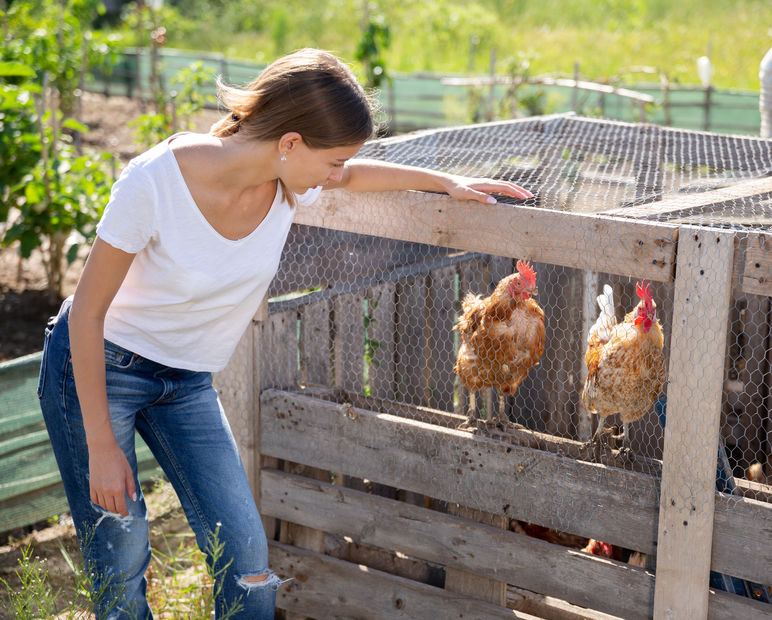Biosecurity for backyard poultry

by Nancy Glazier,
Cornell Cooperative Extension’s NWNY Dairy, Livestock & Field Crops Team
Recently there has been an outbreak of salmonella in 42 states, and as of June 23, 2020, 465 people have been infected. This is nearly twice the number of illnesses compared to last year’s outbreak. Symptoms include fever, diarrhea, and stomach cramps. All of these cases have been attributed to backyard poultry, with infections coming from baby chicks.
Biosecurity is a practice followed on farms to help ensure everyone stays healthy. It’s important for backyard flocks, too. A system of practices should include a comprehensive approach to cover many aspects of potential disease problems.
Safe handling is critical. Hopefully, one thing you’ve learned during the past few months is the importance of handwashing. That goes for handling chicks or chickens, too. Keep them out of the house, and don’t let young children handle them. And please don’t kiss your chickens.
Be aware when buying new birds. Poultry purchased and brought to the home or farm should be quarantined for 30 days prior to adding to an older flock. Quarantined birds need to be far enough away from the home group so they can’t touch beaks, share water or feed, or contact manure. Make sure the area is cleaned, disinfected, and dry before new birds are moved in. Try to source chicks from hatcheries or flocks that are NPIP certified – National Poultry Improvement Program. The voluntary program works with hatcheries to test for a number of diseases to reduce risks to those purchasing chicks.
Keep a separate pair of footwear for use in the henhouse. Your birds may look healthy, but they could have a disease that you don’t want to track into the house or somewhere else from their manure. If you have visitors, it’s best to keep them away from your birds.
Watch out for wildlife and pests. Wild birds can transmit or be carriers of diseases to poultry by contaminating feed or housing. Flies can also carry infectious diseases, so do your best to keep populations at a minimum. Keep rodent populations under control. Keep tall grass cut or trimmed around the perimeter of the henhouse to deter them; they won’t want to risk being caught by predators.
Keep things clean to keep your flock happy and healthy. Always have feed and clean water available. Chickens are fun to raise and watch, just remember to do it safely. More information can be found at https://www.cdc.gov/salmonella/backyardpoultry-05-20/index.html.


